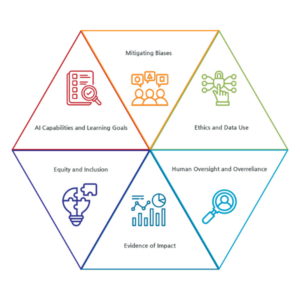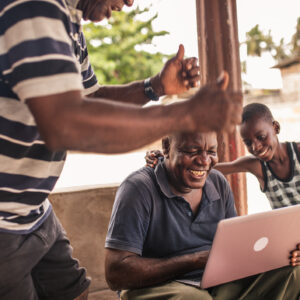
Ensuring that out-of-school girls receive the services they need to get an education and achieve economic independence requires proactive thinking to reduce barriers and prevent school dropout. Through the Strategic Approaches to Girls’ Education (STAGE) project, we are gathering data on out-of-school girls from 109 communities across eight districts in Ghana to understand why they are not in school and how we can increase access to education and enhance community support. This data that the STAGE project shared at a recent virtual forum will help future interventions identify girls at risk of leaving school and provide them with support.
The data revealed that only 2.6% of the girls surveyed were at grade level proficiency for literacy and 4.2% were at grade level proficiency for numeracy. As World Education knowledge management advisor Richard Boateng shared during the forum, socio-economic and gender disparities continue to exist and families struggle to meet basic needs which makes it difficult to invest in their children’s education. Financial struggles proved to be the top barrier to attending school for girls, with all project districts except one having poverty levels above the national average. This insight made it clear that in the future, interventions that provide families with financial independence and build their resilience will be non-negotiable. Other significant barriers include teen pregnancy, early marriage, chore burden, disability, and distance to school.
We involved community stakeholders in data collection and created a baseline assessment of community perceptions toward girls education, skills training, and existing resources that can promote or inhibit learning and economic strengthening. The survey found that most community members support girls and women to get an education, take leadership positions, and have equal rights and opportunities. This data sets the context for developing action plans to advocate for girls empowerment and build the capacity of institutions that are supporting girls. As an example, Richard explained that interventions that seek to change behaviors including sexual and reproductive behaviors would only be successful if complemented with interventions that enhance the resiliency and income levels of households.
Insights gained from this data show the necessity of effective, innovative strategies to remove barriers that out-of-school children face. Creating multiple uncoordinated approaches can hinder efforts. In order to collect data more uniformly, it’s important to establish standards for monitoring and evaluation and harmonize the data entry and verification approaches in national projects that reach out-of-school children. In addition, effective quality assurance strategies and safeguarding measures should be adopted for the data collection, entry, and verification, and inclusive techniques should be used to reach girls with disabilities.
Susan Adu-Aryee, World Education Ghana country director, encouraged policy makers to review and reflect on studies like these to improve planning, decision making, and programming for out-of-school youth in the country. Reliable data mapping will allow implementers to collaborate with institutions such as the Ghana Health Service to design and deliver training on topics like safe sex and prevention of unwanted pregnancies. This targeting of barriers to education and risks of dropouts would likely increase the chances of girls staying in school and the opportunities for out-of-school girls to return to the classroom.




